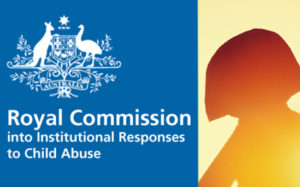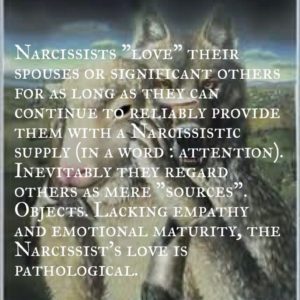 Like many people I was disappointed at the result of the UK referendum. I had wanted the UK to remain part of a Europe which over the decades was part of a world I felt I belonged to. The arguments against staying in the EU became increasingly, to my mind, shrill. The most absurd one was the claim that £100 million a week would be released for the National Health Service, once we stopped paying anything into the EU budget. Spending public money is a political decision taken after a great deal of careful thought. No one today has the right to make promises of behalf of politicians of the future how the national budget is to be allocated.
Like many people I was disappointed at the result of the UK referendum. I had wanted the UK to remain part of a Europe which over the decades was part of a world I felt I belonged to. The arguments against staying in the EU became increasingly, to my mind, shrill. The most absurd one was the claim that £100 million a week would be released for the National Health Service, once we stopped paying anything into the EU budget. Spending public money is a political decision taken after a great deal of careful thought. No one today has the right to make promises of behalf of politicians of the future how the national budget is to be allocated.
I am anxious not to allow this blog to become a political rant. But there are issues that I see as pertinent to our blog’s concerns in what happened on the 23rd June. Many commentators have noted that the vote to leave the EU had to do with, in part, a protest vote on the part of people who have been left behind by the forces of globalism – the unemployed, the disabled and those who fall outside the orbit of what many would describe as ‘successful’ lives in the eyes of others. Chris is often reminding us of this so-called ‘underclass’. One description of this group would be to refer to the fact that many in this category feel they have no real stake in the world of property ownership and accumulated wealth. This is counted of great importance to the capitalist value system of the West. Because this section of the population contributes less to the pot of material wealth that makes our capitalist system work, they are often side-lined or ignored by politicians. Traditionally the least wealthy and exploited sections of society have been supporters of the UK Labour party. This link has often been taken for granted by Labour politicians. They like their Tory opponents have also been sucked into the need to grapple with the existence of the wealth creating capitalist system and making it work successfully. Thus large numbers of people in our country have been left outside the political system and their voices have had little possibility of being heard by those in power.
The Referendum question was whether we as a nation want to stay in or leave the European community. The question was heard in a whole variety of different ways by different groups of people. Some judged the question on entirely rational grounds as an argument about whether the nation would prosper more within Europe or not. Others including the group I have described above saw the vote as an opportunity to express their displeasure at a system supported by politicians of every type and which seemed to have little to offer to them. For many people low wages, poverty of housing and ill-health caused by stress have been a constant reality. This struggle against poverty is unrelenting and draining. At the same time the sight of politicians and celebrities effortlessly, or so it seems, increasing their wealth and ability to spend enormous sums creates a deep visceral anger in those who have little or nothing.
In the Britain of my youth there was a real feeling that, although some people were rich, most people, middle and working class, were part of the same society. Nobody earned vast sums of money and GPs, to take one example, were paid modestly. The years after the end of the Second War were a time when it could be said that we were all in it together. It may not have been completely true but there was a far greater sense of social solidarity rooted in the common memory of together getting through the hardships of war. The real change seems to have taken place after around 1970. That was when the wages of an elite group, from bankers to industrial chiefs, started to take off. This is the thesis of a book that I read a year ago which suggested that an unequal society creates enormous unhappiness and stress to everyone. Once the pay of a few becomes disproportionate to what the bulk of working people earn, there is a reaction. The people at the bottom of the pile finding it difficult to articulate their sense of social exclusion in words, nevertheless have strong feelings of rage, resentment and bitterness towards anyone or anything they can blame for their struggling state. The 1% group, those who earn vast sums of money and have done well out of a massive increase of wealth are clearly in favour of a system which the European experiment favours. These are going to be the first targets of resentment on the part of the less well-off. Another target of dislike will be any immigrants who, correctly or not, are perceived as taking British jobs and pushing down wages. These two perceptions on the part of large numbers of our citizens will, if we had really thought about it, have made Brexit a highly likely outcome. The poor and the disadvantaged have for some time turned into the disenfranchised because their voice is no longer heard by politicians. This unheard sector of our population had wanted desperately to be listened to and heard by society as a whole and the only way they felt their feelings of anger at the system could be heard was to vote against the EU. No one was able to explain to them that their lives had in any way been improved because of it over the past twenty or thirty years.
Chris my blog partner has a lot to say on the topic of the Church also failing to listen to the poor in our society. The few churches that do appear to appeal to the disenfranchised are churches that offer, as I would put it, candy floss religion which does little to improve the lot of the poor or that of their communities. What is needed of course is a new political deal that seeks to improve housing, health and education. The church, if it were properly listening to the poorest, would be saying that to government on behalf of these communities. Instead of this the Church of England is fighting internal battles over the status of ‘gay marriage’. At this point we find ourselves talking about the complete opposite of what we normally address, the abuse of power in the church; we are talking about the empowerment of people with the help of churches who want to better the lives of those in their communities. We have spoken a lot about abuses of power in the Church, institutional and individual, and the ways that are needed to counter that abuse. But as I reflect on the aftermath of the Referendum of 2016, I see an even more reliable way to counter the misuse of power in the church. It is for the church to prioritise the idea of service and empowerment and put it at the heart of ministry. It is important to talk about power abuse to show that we understand it as a problem but then we need to go on to say how ministers of all the churches above all be taught to empower others. This, I believe, is the heart of ministry. If this empowerment, political, spiritual, social and personal, started to be a reality as well as a priority in churches up and down the land and people could see it, then power abuse would indeed wither on the vine. Jesus spoke about being among his followers as one who serves. May this be a reality for all in positions of leadership in the church. To misquote John’s epistle. There is no room for abuse in true service and empowerment. Perfect service and empowerment casts out abuse.








